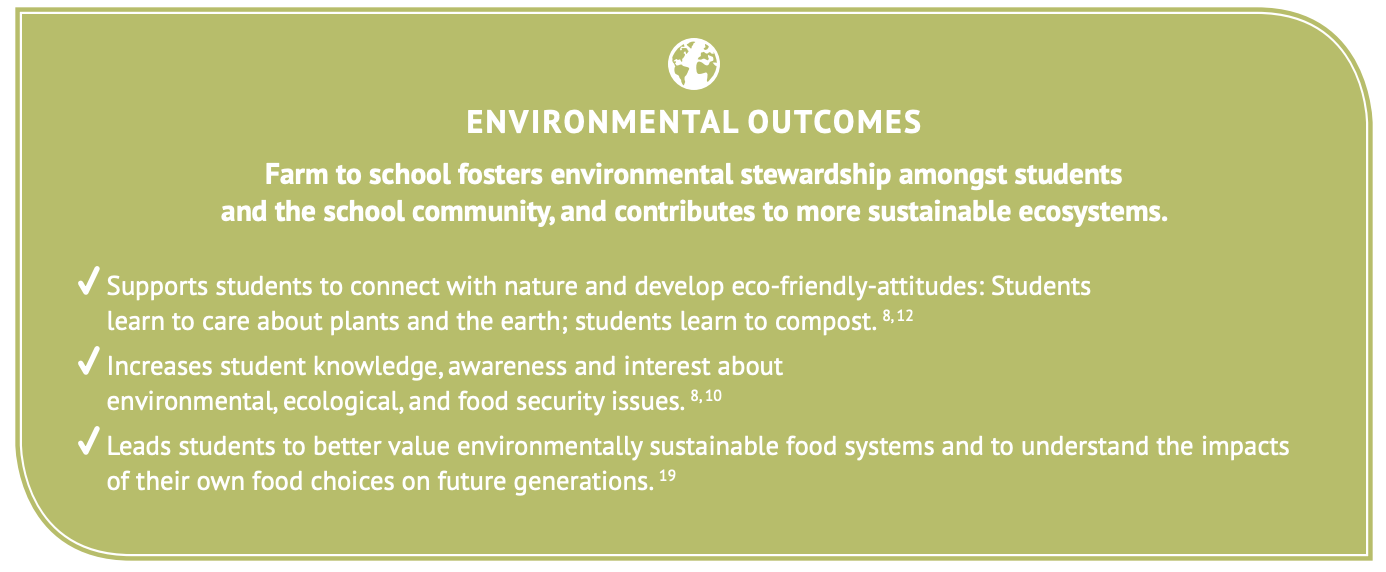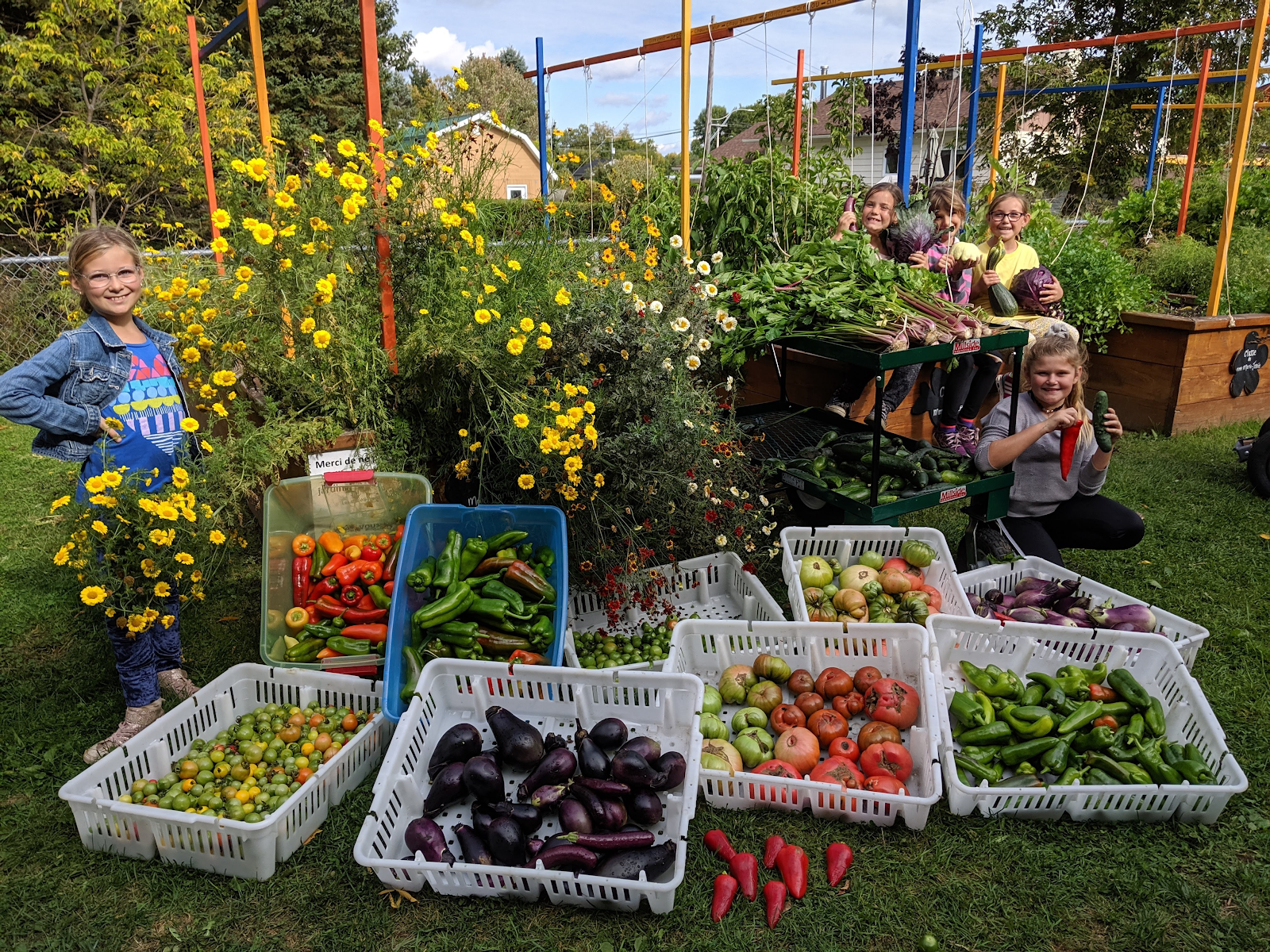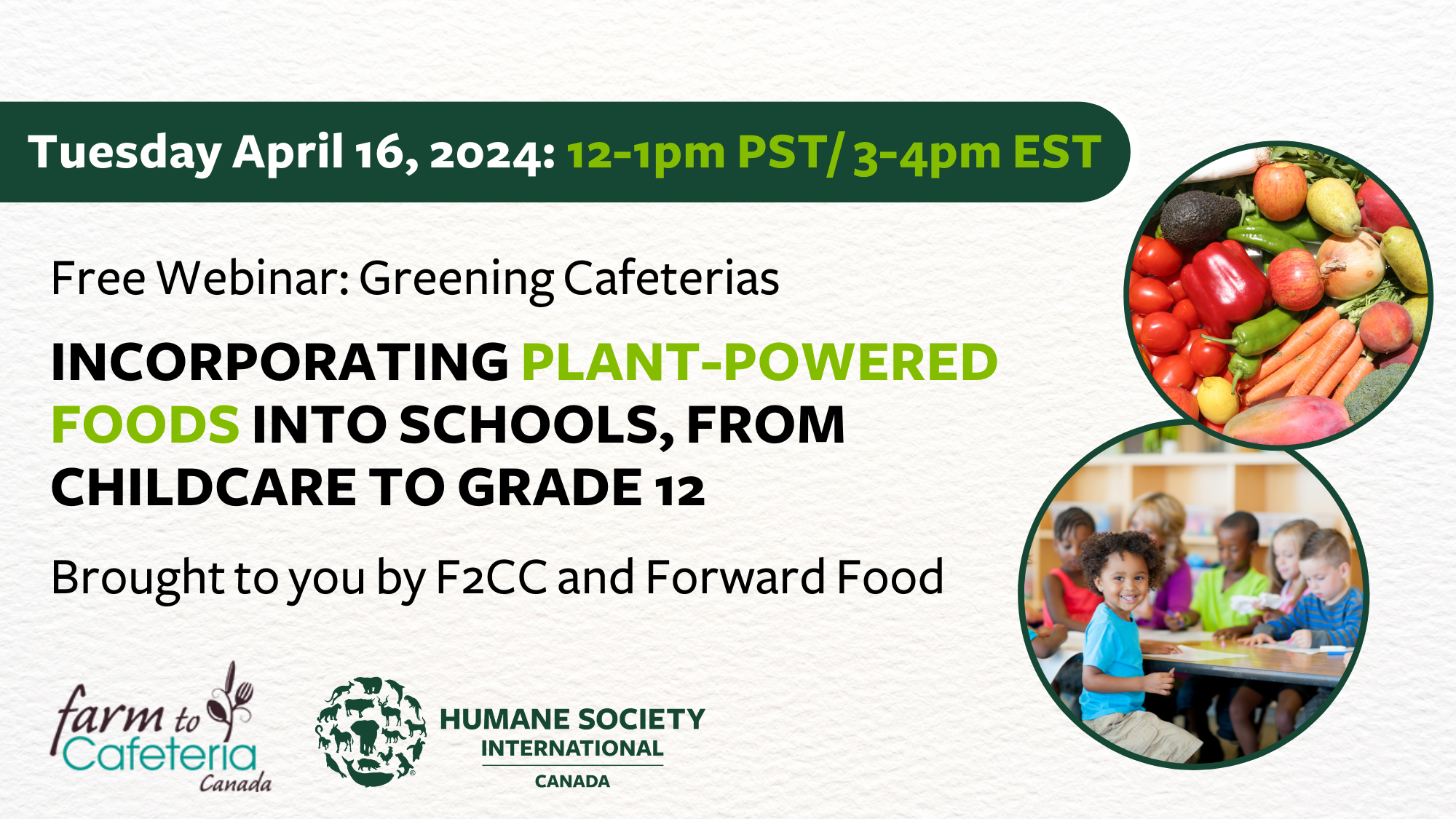Photo credit : École Louis-de-France, Trois-rivières, Québec
 Earth Day is coming up on April 22nd! The theme for 2021 is Restore Our Earth, with a focus on “natural processes, emerging green technologies, and innovative thinking that can restore the world’s ecosystems.”
Earth Day is coming up on April 22nd! The theme for 2021 is Restore Our Earth, with a focus on “natural processes, emerging green technologies, and innovative thinking that can restore the world’s ecosystems.”
Farm to Cafeteria Canada’s vision is vibrant and sustainable regional food systems that support the health of people, place and planet. We know that schools are a powerful space to support our environment and food system, and we’ve seen this power firsthand through farm to school programs.
Earth Day is a time to learn about and take action for the earth. For farm to school supporters, every day is Earth Day.
To celebrate on April 22nd, we invite you to find some farm to school inspiration on our website:
Our Healthy People Healthy Planet Resource List offers videos, toolkits, and hands-on activities. Many of the resources outline activities that can be done in the classroom, at home, or in the community. While some are developed with specific audiences or age groups in mind, many of them are informative for all ages.
In our blog posts about the environment, you’ll find many stories showcasing how farm to school initiatives can support the environment.
Salisbury Elementary School in New Brunswick has demonstrated how a focus on food literacy education can support our Earth. Their story shares students visiting local farmers, providing them with hands-on learning about growing food and the importance of a healthy environment. They now have their own strawberry patch thanks to the help of a local farmer and a new three-tiered composter built by high school students.
Nobel Public School in Ontario began their farm to school journey with an Ontario Ecoschool initiative that looked at their school’s environmental impact, which led them to apply for a farm to school grant to build a sustainable salad bar. In addition to purchasing a salad bar unit with their grant, they were able to buy reusable dishes to reduce waste, increase access to healthy local food, and collaborate with community partners to increase community engagement. Their story explains how the grant was a jumping off point for what has evolved into a complete food cycle enterprise, with school gardens, aeroponic tower gardens and a vermicomposting program.
Gudangaay Tlaats’gaa Naay Secondary School in British Columbia has students eating foods from the land and sea, beautifully showing how school food can immerse students in their local food system. In one year, their school purchased over 60 lbs of local berries, 176 lbs of local vegetables from farms and 175 lbs of local protein to serve in hot lunches. They also received hundreds of pounds of donated venison, fish and beef from a variety of sources.
In 2019, Huband Elementary, also in British Columbia, hosted a special Earth Day Salad Bar with their students.
We also recently released a 9-minute video centred around Primrose Elementary in Ontario, showing how the Farm to School Approach supports student nutrition and learning as well as the environment.
Ultimately, farm to school gets students eating, cooking, growing, thinking about and embracing healthy local food, which supports the health of individuals as well as the health of the planet — whether it’s through planting new gardens and caring for the land, purchasing and consuming locally-grown food, and/or growing eco-conscious attitudes from a young age.
In fact, our Farm to School: Canada Digs In! report shows that 95% of schools involved in these programs said that students “were more aware of and had greater knowledge about gardening, agriculture, and the environment.”
Our Farm to School Benefits Sheet also underscores how farm to school initiatives foster environmental stewardship among students and the school community, listing these environmental outcomes:







[…] celebration of Earth Day, Farm to Cafeteria Canada (F2CC) shared some great resources and stories on their blog, showing how every day is Earth Day for farm to school […]